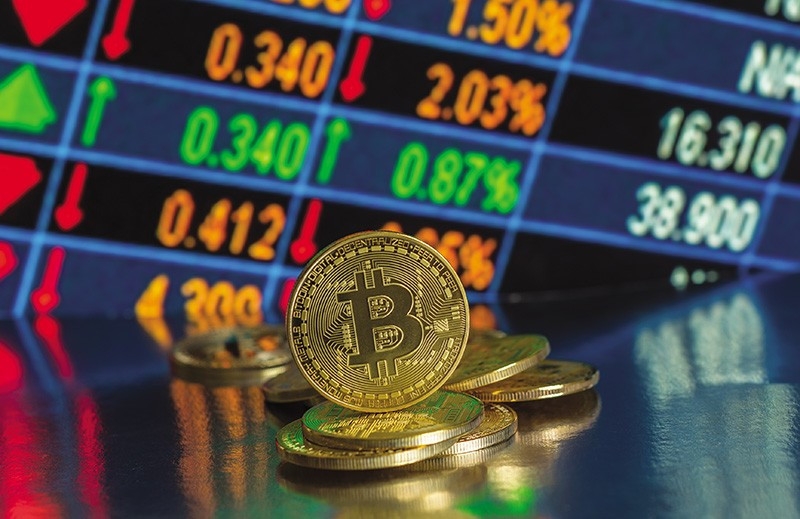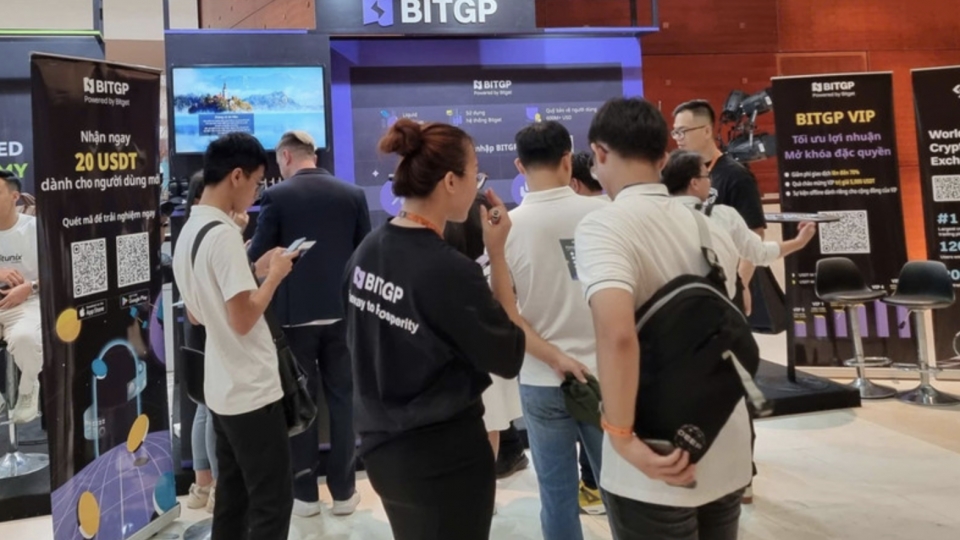Domestic, international players eye Vietnam’s pilot digital asset market
A growing number of major domestic and international investors are showing strong interest in Vietnam’s pilot digital asset market.

Recently, Kim Hyoung-nyon, executive vice president of Dunamu Group, and Lee Eunhung, vice chairman of Hana Financial Group of the Republic of Korea (RoK), visited Vietnam and met with leaders of the Government and the Ministry of Finance. Both expressed the willingness to invest in Vietnam, particularly in the crypto asset sector, and signalled readiness to partner with local firms.
Dunamu, the operator of Upbit — the largest centralised crypto asset exchange in the RoK and the third-largest globally, sees high growth potential in Vietnam’s digital asset space. Kim affirmed Dunamu’s intention to pursue long-term investment in the country.
In July, Binance CEO Richard Teng also came to Vietnam to share experience with businesses in the field. As of June 2025, the world's biggest cryptocurrency exchange held more than 41% of the global daily cryptocurrency trading volume, with over 280 million users and daily transactions reaching approximately US$90 billion.
Teng said Binance views Vietnam not just as a consumer market, but also as a strategic partner in shaping the future of the digital economy, a relationship expanding beyond service supply toward extensive collaboration in financial innovation.
GM Vietnam 2025 — one of Asia’s largest blockchain and digital asset events — recently brought together hundreds of global tech firms, start-ups, and regulators. Among the notable names were Tether (behind USDT, the world’s largest stablecoin with a market cap of over US$100 billion), Nasdaq Technology (US$20 billion in market cap), and Animoca Brands, a top Web3 investment fund managing over 400 blockchain projects.
Other prominent participants included Republic, HashKey, Sui, Aptos, TRON, and Polkadot — firms with market capitalisations ranging from US$1 billion to over US$10 billion. These companies provide infrastructure for DeFi, NFTs, and Web3 and are actively exploring project opportunities in Vietnam.
At a meeting with Dunamu and Hana, Finance Minister Nguyen Van Thang reaffirmed that the Vietnamese Government and Ministry of Finance is committed to facilitating innovation, especially in potential sectors like crypto and digital assets. He noted the country is working to establish a clear and transparent legal framework to support business development and ensure market safety.
A draft resolution on piloting a digital asset and cryptocurrency market is being developed by the Ministry of Finance and expected to be submitted to the Government this August. It aims to create a broad-enough regulatory sandbox that enables investor participation and provides practical grounds for policy refinement in areas such as risk management and anti-money laundering.
Teng welcomed the move, saying a legal framework for crypto assets will help attract talent as well as foreign direct investment, and boost economic growth. He recommended Vietnam base its regulatory approach on cooperation among stakeholders, including regulators, policymakers, and both local and foreign enterprises, and refer to international standards on Know Your Customer (KYC), Anti-Money Laundering (AML), Counter-Terrorist Financing (CFT), and digital asset custody.
David Chan, managing director at Boston Consulting Group (BCG) Hong Kong, emphasised that digital asset exchanges must meet four key criteria: legal compliance, stable infrastructure, reasonable operating costs, and strong brand identity. He advised that authorities consider building a transparent and verifiable legal framework such as a conditional sandbox or a two-tier licensing system. Meanwhile, businesses should focus on security, user experience, and service integration.



